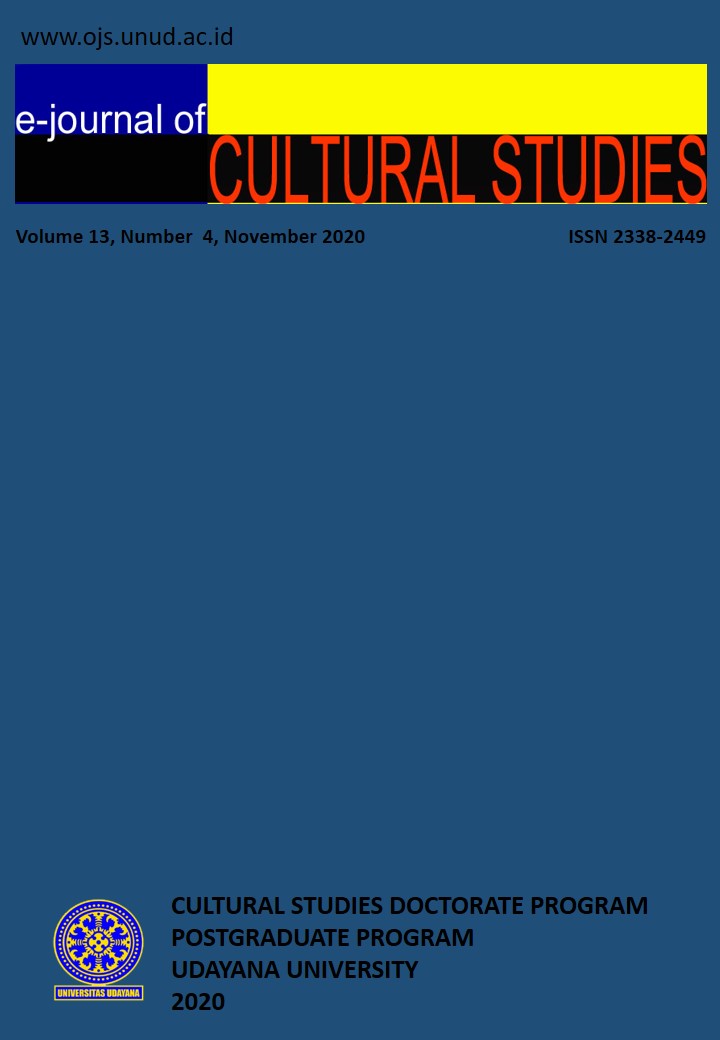RECLAIMING KARONESE IDENTITY THROUGH ERPANGIR KU LAU RITUAL
Abstract
Dutch colonialism in Tanah Karo has long ended but not with the construction of the discourse. The unilateral evaluation of the Dutch towards the spirituality of the Karo people caused the Karo people to split into groups and live with social pathology. The colonial discourse is now experiencing challenges as the erpangir ku lau ritual was established as a national intangible cultural heritage and was made as one of the routine cultural tourism attractions in Karo District.
This research uses a descriptive qualitative research method because it uses theory as a platform. The data source of this research consists of primary data obtained through observation and in-depth interviews, and secondary data obtained through books, scientific papers, documents, and online sources.
The results of the study revealed that despite being rejected by one of the community groups, support for efforts to reclaim Karo's identity through the implementation of the erpangir ku lau ritual was still activated. This is because the effort to reclaim identity is expected to bring back the Karo community following the identity of the ancestral heritage, namely mehamat (polite), metami (persuading), melias (loving), perkuah (generous), and perkeleng (merciful) towards fellow humans and ancestors, The Creator, and the universe.
Keywords: Reclaiming Identity, Erpangir Ku Lau, Colonial Discourse, and Karo Society







